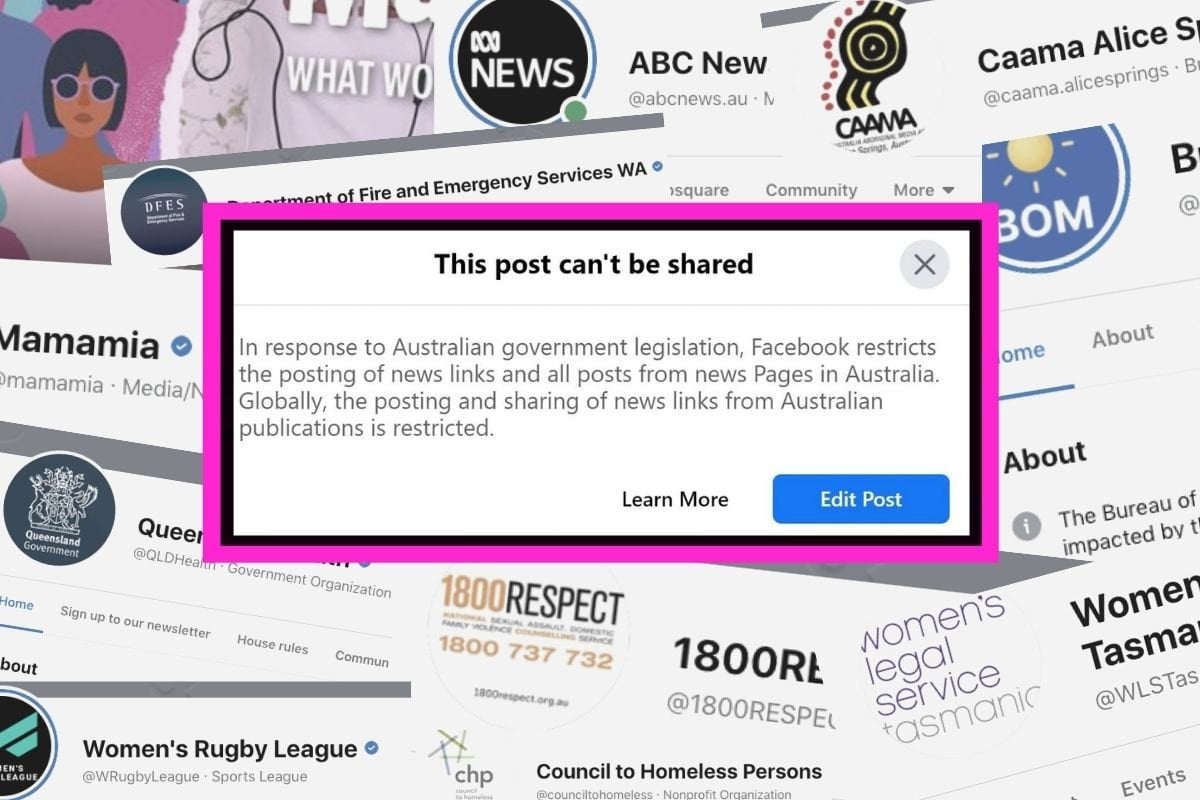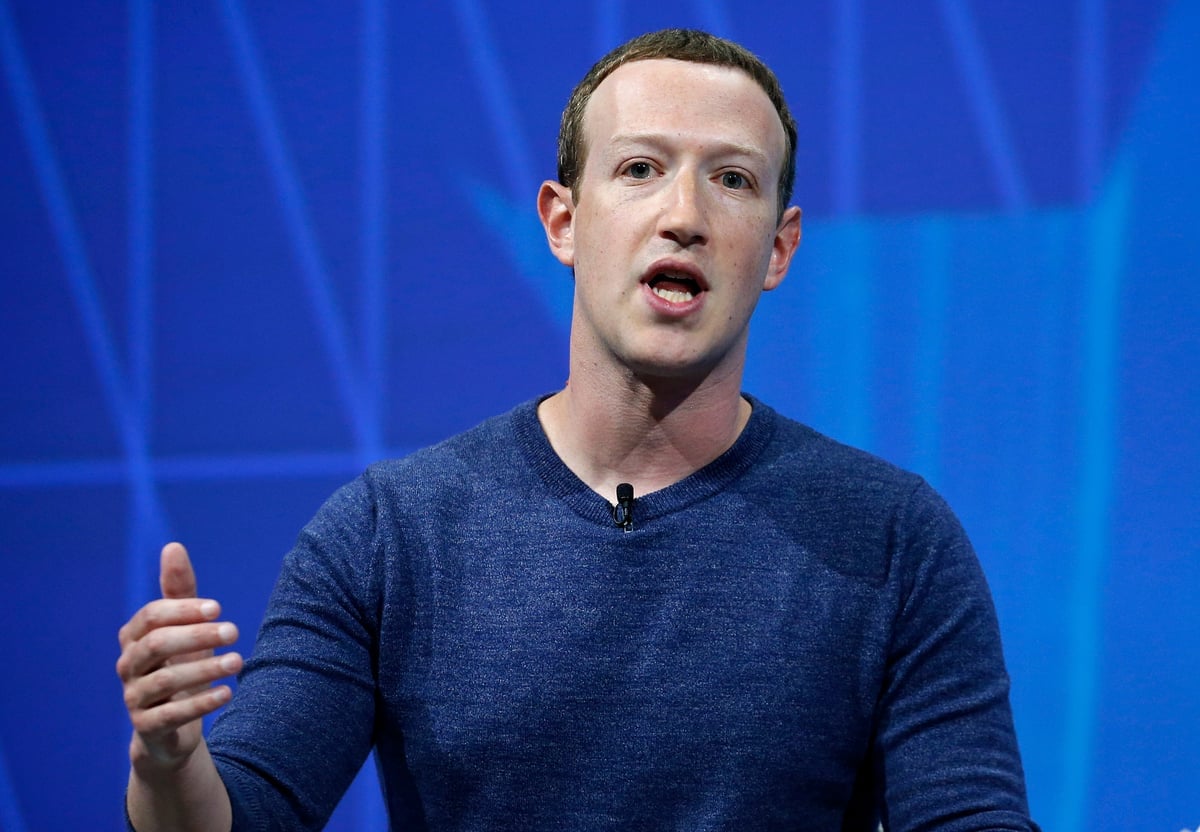
Facebook has followed through on its threat to ban Australians sharing news on its platform in response to a proposed media bargaining code.
Australian users and publishers are from today, Thursday February 18, restricted from viewing or sharing domestic and international news, with overseas users also unable to access Australian news content.
READ: Absolutely every other way you can find Mamamia content after the Facebook news ban.
This means media companies like Mamamia will no longer appear in your feed, and when you search for us on Facebook, our page will appear blank.
Initially Facebook also blocked important information pages including the weather bureau, health departments, police agencies and charities.
So Facebook considers @qldhealthnews to be news as well? During a pandemic? C'mon Mark Zuckerberg pic.twitter.com/8yqUNuI9p4
— Dominic Cansdale (@DominicCansdale) February 17, 2021


Top Comments